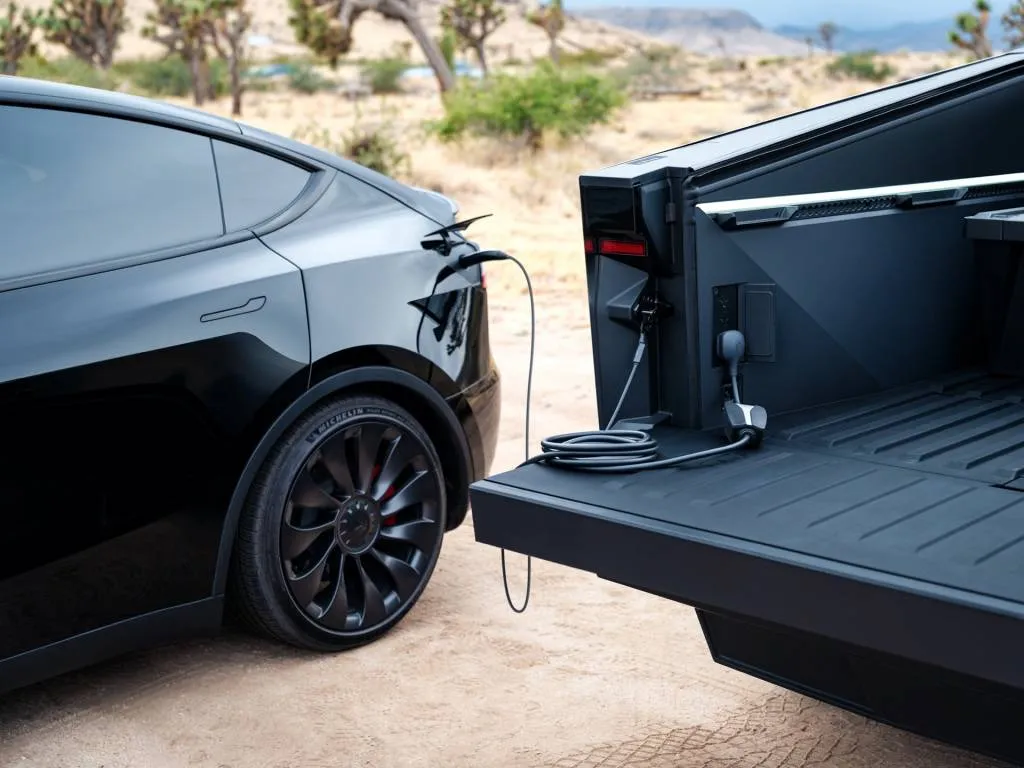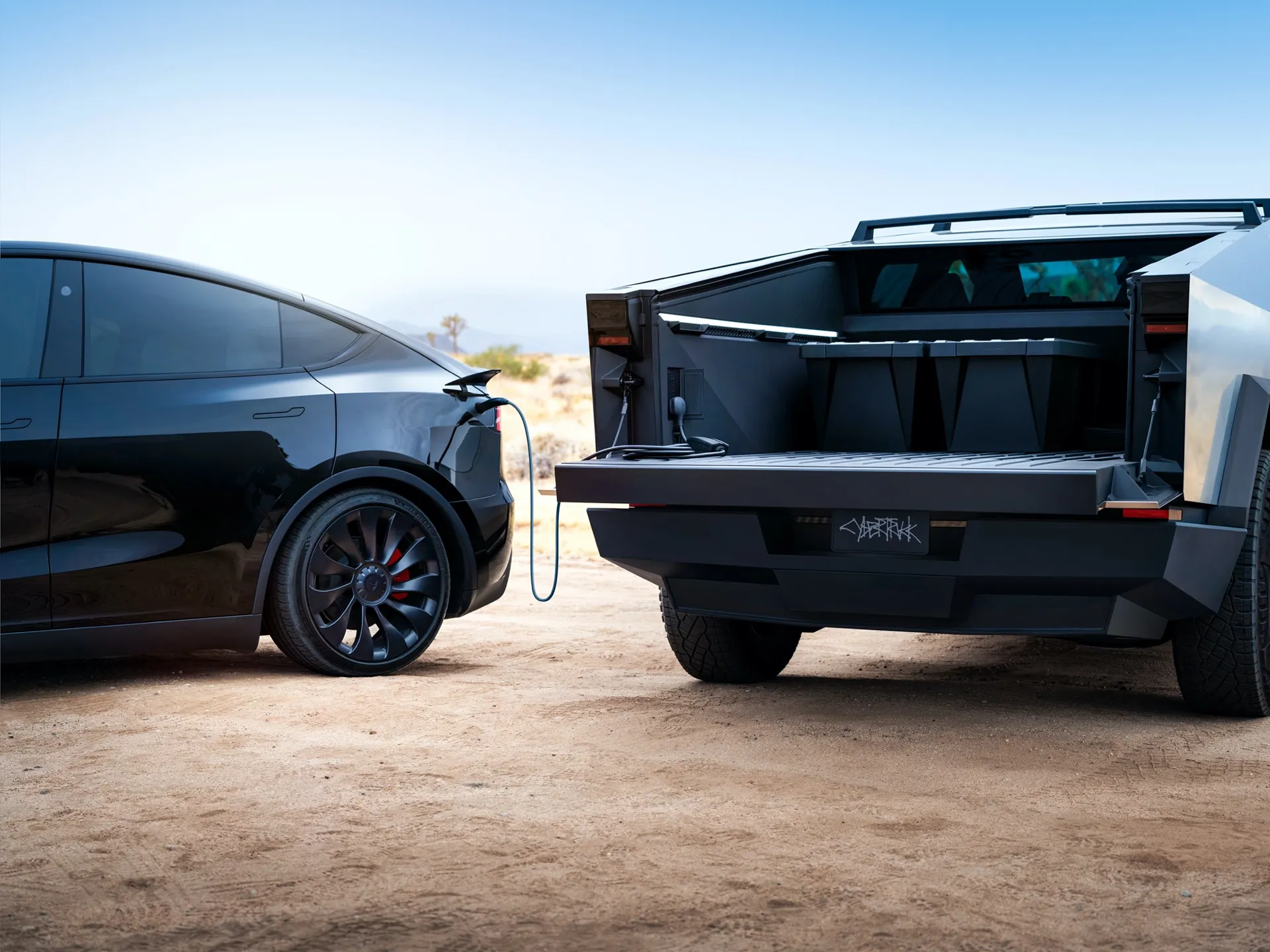With the rollout of the production 2025 Cybertruck on Thursday, Tesla included a couple of battery-related surprises—including a long-awaited turnaround on the ability to use its EVs for home-energy backup in power outages.
While one of those battery surprises involved a separate range-extender, mounting inside the pickup’s bed and taking up cargo space (and likely lowering efficiency), to achieve something close to the originally claimed 500-mile range, the Cybertruck’s built-in Powershare capabilities promise to be more of a crowd-pleaser.
With Powershare, Tesla is enabling home backup at up to 11.5 kw through the charge port, or an output of up to 9.6 kw through a total of five outlets in the Cybertruck. That includes two 20-amp, 120-volt outlets in the cabin; two 20-amp, 120-volt outlets in the cargo bed; and a 40-amp, 240-volt outlet in the cargo bed. Any can be used to power tools for worksites or appliances for camping.
2025 Tesla Cybertruck – Courtesy of Tesla, Inc.
Further, a Powershare Mobile Connector allows the charging of other EVs at up to 32 amps (7.7 kw).
Tesla notes that no additional equipment will be required when homes are already equipped with Powerwall and the Wall Connector. It notes that home power can be provided for over three days (based on 30 kw per day) “with zero noise and emissions.”
The company shows the services integrated as part of the Tesla app, with set-and-forget Powershare preferences, energy history info, and real-time usage—as well as remote access, of course.

Tesla Powershare
For now, Tesla notes that these features will only be offered on Cybertruck, but as part of its Investor Day in March, the company had confirmed bidirectional charging for future Teslas—set to roll out to all of its models over the next two years.
Senior Vice President for Powertrain and Energy Engineering Drew Baglino, at that time, said that bidirectional charging just hadn’t been a priority until recently, but they had more recently found a way to add the tech. CEO Elon Musk, then, added that few people are going to use bidirectional charging unless they have a Powerwall—because of the inconvenience of suddenly needing to unplug the home power to drive somewhere.

2025 Tesla Cybertruck – Courtesy of Tesla, Inc.
Tesla is late to join the hype about bidirectional charging, but realistically its vehicles will be right on time with when it becomes a more common EV offering. Only a couple of U.S.-market vehicles offer bidirectional charging that can backup the home. The Kia EV9 offers a coordinated setup with Wallbox that taps into the EV9’s home-backup and vehicle-to-grid functionality together, and the Ford F-150 Lightning offers a home backup power system at a total cost of less than $6,000, including the home charger. Volvo has also built the capability into its EX90 electric SUV and will be enabling it soon after arrival next year.
Read the full article here




